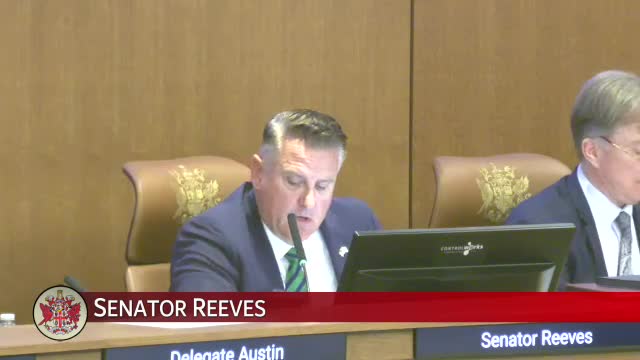Virginia Lottery warns long-term funding shortfall for casino regulation; urges planning for gaming commission financing
Get AI-powered insights, summaries, and transcripts
Subscribe
Summary
The Virginia Lottery told the General Assembly subcommittee that licensing fees now fund casino regulation but will not sustain the agency indefinitely, citing an estimated $7 million annual gap and urging the legislature to plan funding for a future Virginia Gaming Commission.
The Virginia Lottery told the Joint Subcommittee on Gaming on Oct. 22 that licensing fees now pay for the state’s casino regulation but will not sustain regulatory operations over the long term.
Khalid Jones, executive director of the Virginia Lottery, told the panel that “the licensing fee revenue will not be sufficient going far into the future” and that the agency is already projecting an approximate $7 million annual shortfall as the industry and regulatory responsibilities expand.
The Lottery currently collects a $15,000,000 initial casino licensing fee (good for a 10-year period) and a $200,000 sports-betting operator fee with three-year renewals. Jones said the agency has used those licensing fees to fund a roughly 100-person gaming compliance staff, maintain a 24-hour Lottery presence at operating casinos and cover investigations, audits and data analytics. He said the agency expects to receive an additional $30 million in casino licensing fees once two pending casinos are licensed, which would cover operations through roughly fiscal 2029–2030.
Why it matters: Jones told lawmakers that funding choices made now will affect the structure and capabilities of any future Virginia Gaming Commission. If the commonwealth expands regulatory responsibilities (for example, to include horse racing or additional gaming forms), the Lottery’s current funding model—largely derived from one-time licensing receipts and periodic renewals—may be inadequate.
Details and context
- Jones described the licensing timeline and deadlines: after local referenda are certified, applicants have five calendar years to obtain a license and the Lottery staff has one year to complete a full application review. He stressed the timing to lawmakers to explain when license fees and application timelines come into play.
- On current revenue sources, Jones said: “All the money that we use to regulate comes from licensing fees, sports betting fees. That initial the the biggest chunk comes from the casino licensure fees, and then the renewals from from all of the, operators and licenses.”
- He estimated the agency’s staffing needs at about 100 employees once all five authorized casinos are operating and emphasized that many functions—investigations, audits, compliance, problem-gambling work and 24-hour casino oversight—are ongoing costs that renewal fees and tax revenue do not currently cover for regulation.
- When asked whether taxes paid by casinos are used to fund Lottery regulatory work, Jones replied, “No. Not from the taxes.” He said the Lottery treats licensing and regulatory funding as separate from tax receipts that are statutorily distributed to host localities and other funds.
Lawmakers’ questions and agency responses
Several members asked whether other states charge the industry directly for regulatory costs. Jones told the subcommittee there are three primary funding approaches in other states: (1) higher initial and renewal licensing fees, (2) regulatory assessments or charges on the industry tied to revenue, and (3) a mixture of licensing plus tax-supported funding. He said Virginia’s model has relied heavily on front-loaded licensure fees and urged the subcommittee to consider long-term stability when planning a future commission’s funding.
Jones also urged the legislature to consider the timeline of casino openings and that the Commonwealth is still early in the gaming lifecycle: “Casino gaming in Virginia is 5 years old,” he said. “We’re toddlers. ... There’s things that we can learn.”
What the Lottery recommended (summary of testimony)
- Recognize that licensing fees will not indefinitely fund expanded regulation. Plan a sustainable funding approach for a future gaming commission that anticipates broader duties and longer-term enforcement costs.
- Preserve the Lottery’s regulatory safeguards now in place (24-hour presence at casinos, investigative staff, audit capacity) while the legislature studies a potential transfer of regulatory authority to a new commission.
Ending note
Jones said the issue is not an immediate crisis but a forward-looking one: “This is not an issue for next year. I want to make sure that we’re looking far into the future to make sure the health of gaming regulation in the Commonwealth is secure.”
